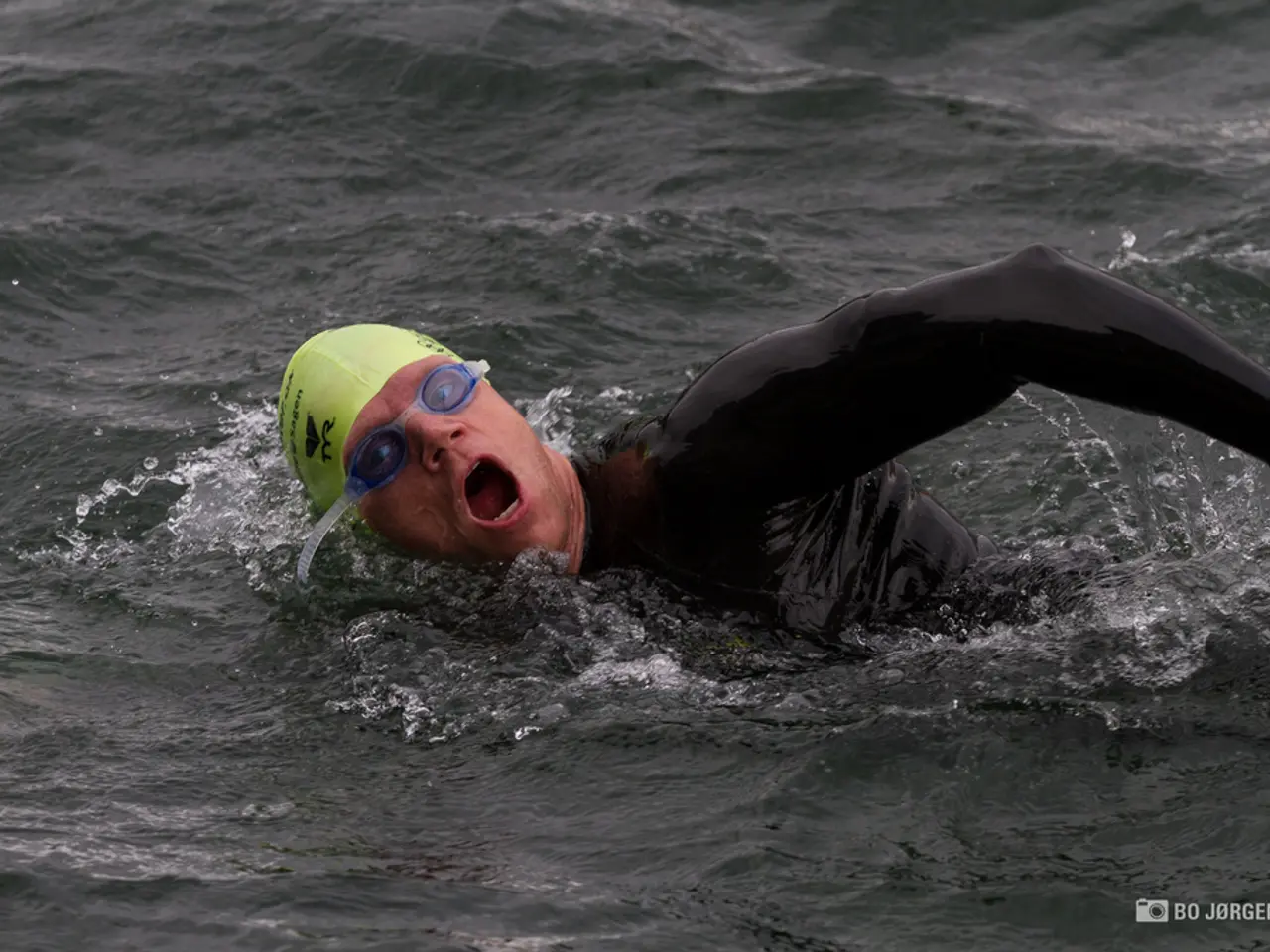Is it Safe to Go Swimming After Having Ears Pierced?
In the world of body piercings, one of the most common questions asked is when it's safe to dive back into the water after getting ears pierced. The answer, it seems, is not as straightforward as one might think.
Whether it's a casual dip in the pool or a leisurely swim in the ocean, it's crucial to remember that complete avoidance of water during the healing period is the safest approach, regardless of how clean or well-maintained the water source appears to be. This advice holds true for both earlobe and cartilage piercings.
For earlobe piercings, a waiting period of 6-8 weeks is generally recommended before taking a dip. However, for cartilage piercings, the healing process can take significantly longer - up to 12 months in some cases. During this time, it's best to avoid submerging the piercing in water to prevent infection.
The reasons for this caution are manifold. Water, especially in pools, lakes, rivers, or oceans, can contain harmful bacteria that can cause infections. Moreover, water pressure can force contaminants deeper into the piercing channel, creating infections in areas that are difficult for the immune system to reach and treat.
Chlorine, salt water, and pool chemicals can also irritate healing tissue, making it more susceptible to infection. This is why it's important to avoid swimming in contaminated water before the piercing heals, as doing so can turn a simple healing process into a medical emergency requiring antibiotic treatment or even surgical intervention.
Accidental water exposure during healing requires immediate action to minimize infection risk. This includes rinsing with sterile saline solution, avoiding hydrogen peroxide or alcohol, and gently patting dry with a clean paper towel. However, the most reliable protection for fresh piercings is complete avoidance of water exposure, as no product can guarantee complete protection against the complex risks associated with swimming during the healing period.
Once the piercing has fully healed, professional-grade jewelry materials are less affected by water exposure, making protection less necessary for those with properly selected piercing jewelry made from appropriate materials. Custom-molded ear plugs from audiologists provide the best fit and protection for swimmers with healed piercings who want maximum water protection during regular swimming activities.
In conclusion, the decision of when to swim after getting ears pierced isn't about convenience - it's about protecting your health and ensuring proper healing that will last a lifetime. Professional piercers and medical experts consistently emphasize conservative approaches to piercing aftercare, prioritizing long-term health over short-term convenience. The consequences of swimming too early can include severe infections, permanent scarring, keloid formation, and systemic infections that spread throughout the body. So, it's always best to err on the side of caution and wait until your piercing is fully healed before taking a dip.
[1] Source: Mayo Clinic, "Ear Piercing: What You Need to Know" [2] Source: American Academy of Dermatology, "Ear Piercing: What You Need to Know" [3] Source: Centers for Disease Control and Prevention, "Recreational Water Illnesses" [4] Source: Association of Professional Piercers, "Cartilage Piercings" [5] Source: National Institute of Health, "Cartilage Piercing: A Review of the Literature"
- In the realm of overall health and wellness, it's essential to consider the importance of maintaining good skin care, especially after undergoing a procedure like fitness-and-exercise routines or sports activities that might cause sweat and friction, as proper skin care can speed up recovery and reduce the risk of infections.
- Just as it's crucial to prioritize mental health and practice stress-management techniques during demanding sports-betting activities, one must also ensure that their mental state remains balanced to make rational decisions and avoid impulsive actions, as stress can impact concentration and judgement.
- In the same vein, individuals who engage in sports should also prioritize their physical health, focusing on fitness-and-exercise routines designed to improve strength, flexibility, and endurance, while accounting for factors such as age, fitness level, and specific sport requirements to optimize performance and minimize the risk of injuries.




